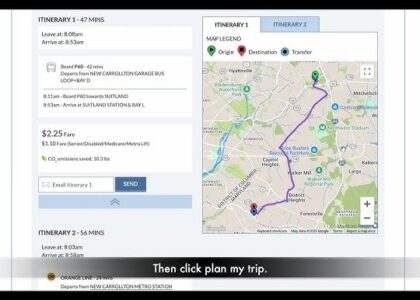Defense Travel: Ensuring Security and Efficiency
In the realm of national defense, travel plays a crucial role in maintaining security and operational readiness. Whether it involves military personnel deploying to distant locations or government officials attending international conferences, defense travel requires meticulous planning and execution to ensure the safety and efficiency of all involved.
The Importance of Defense Travel
Defense travel is not merely about moving individuals from one place to another; it is about safeguarding national interests, promoting diplomatic relations, and supporting military operations. In an increasingly interconnected world, the ability to swiftly and securely transport personnel, equipment, and information across borders is essential for maintaining a strong defense posture.
Challenges Faced in Defense Travel
Despite its importance, defense travel poses unique challenges that must be addressed effectively. These challenges include navigating complex international regulations, ensuring the safety of travelers in high-risk environments, managing logistics for large-scale deployments, and optimizing cost-efficiency without compromising security.
Technological Innovations in Defense Travel
To overcome these challenges, the defense sector is embracing technological innovations that enhance the planning and execution of travel operations. Advanced data analytics enable real-time monitoring of travel movements, while secure communication platforms facilitate seamless coordination among stakeholders. Additionally, automation tools streamline administrative tasks and improve decision-making processes.
The Future of Defense Travel
As geopolitical dynamics continue to evolve and threats become more diverse and unpredictable, the future of defense travel will rely on adaptive strategies that prioritize agility, resilience, and innovation. By leveraging emerging technologies and fostering collaboration among international partners, defense organizations can enhance their capabilities in responding effectively to global security challenges.
Understanding Defense Travel: Key Questions and Insights
- What is defense travel?
- Why is defense travel important in national security?
- How does the military plan and execute travel for personnel?
- What challenges are faced in coordinating defense travel operations?
- What measures are taken to ensure the safety of travelers during defense travel?
- How does technology support defense travel logistics and communication?
- What are the key considerations for optimizing cost-efficiency in defense travel?
What is defense travel?
Defense travel refers to the movement of military personnel, government officials, and related personnel for official purposes such as deployments, training exercises, diplomatic missions, and conferences. It encompasses the planning, coordination, and execution of travel activities to ensure the security, efficiency, and effectiveness of defense-related operations. Defense travel plays a critical role in supporting national security objectives, maintaining operational readiness, and fostering international partnerships. By facilitating the transportation of personnel and resources across various locations, defense travel contributes to the overall preparedness and strategic capabilities of defense organizations.
Why is defense travel important in national security?
Defense travel is crucial in national security for several key reasons. Firstly, it enables the rapid deployment of military personnel to strategic locations, ensuring a timely response to emerging threats and crises. Additionally, defense travel facilitates international cooperation and coordination, strengthening diplomatic relations with allies and partners. By allowing for the exchange of expertise and intelligence across borders, defense travel enhances situational awareness and preparedness for potential security challenges. Furthermore, through effective travel planning and execution, defense organizations can optimize resource allocation and operational efficiency, ultimately contributing to the overall effectiveness of national defense strategies.
How does the military plan and execute travel for personnel?
The military meticulously plans and executes travel for personnel through a structured process that prioritizes efficiency, security, and mission readiness. This involves coordinating with various departments to determine travel requirements, such as destination, duration, and purpose. Detailed itineraries are developed, taking into account logistical considerations and potential risks. Military personnel may undergo specialized training to ensure they are prepared for the specific demands of their travel assignments. Additionally, advanced technology is utilized to track and monitor travel movements in real-time, enabling swift responses to any unforeseen circumstances. Overall, the military’s approach to planning and executing travel for personnel is comprehensive and strategic, aimed at ensuring the successful completion of missions while safeguarding the well-being of individuals involved.
What challenges are faced in coordinating defense travel operations?
Coordinating defense travel operations presents a myriad of challenges that require careful consideration and strategic planning. One significant challenge lies in navigating complex international regulations governing the movement of military personnel and equipment across borders. Ensuring the safety and security of travelers in high-risk environments is another critical concern, requiring robust risk assessment protocols and contingency plans. Managing logistics for large-scale deployments demands meticulous coordination of transportation, accommodation, and supply chain logistics to support mission objectives effectively. Additionally, optimizing cost-efficiency while upholding stringent security standards poses a continuous challenge that necessitates innovative solutions and resource allocation strategies. Overcoming these challenges demands a comprehensive approach that integrates technology, collaboration, and proactive risk management to ensure the success and effectiveness of defense travel operations.
What measures are taken to ensure the safety of travelers during defense travel?
When it comes to ensuring the safety of travelers during defense travel, stringent measures are implemented to mitigate risks and protect individuals involved in military operations or government-related trips. These measures typically include thorough threat assessments prior to travel, security briefings to educate travelers on potential risks, adherence to strict protocols for secure transportation and accommodations, access to emergency communication channels for immediate assistance, and continuous monitoring of travel movements for rapid response in case of emergencies. By prioritizing safety at every stage of the travel process and leveraging advanced security technologies, defense organizations aim to safeguard the well-being of travelers and uphold operational readiness in challenging environments.
How does technology support defense travel logistics and communication?
Technology plays a pivotal role in supporting defense travel logistics and communication by providing advanced tools and systems that enhance efficiency, security, and coordination. In terms of logistics, technology enables real-time tracking of personnel and equipment, optimizing routes, and managing resources effectively. Communication is facilitated through secure platforms that ensure encrypted messaging, video conferencing capabilities, and instant information sharing among stakeholders. By leveraging technology solutions such as data analytics, automation tools, and communication software, defense organizations can streamline travel operations, improve decision-making processes, and enhance overall readiness in an ever-evolving security landscape.
What are the key considerations for optimizing cost-efficiency in defense travel?
When it comes to optimizing cost-efficiency in defense travel, several key considerations must be taken into account. First and foremost, careful planning and budgeting are essential to ensure that resources are allocated effectively. Utilizing advanced technology solutions for booking travel arrangements and tracking expenses can help streamline processes and identify cost-saving opportunities. Additionally, consolidating travel requirements and implementing standardized policies can lead to economies of scale and reduce overall expenses. Prioritizing safety and security measures while seeking competitive pricing from vendors is crucial in balancing cost-efficiency with operational needs in defense travel.





